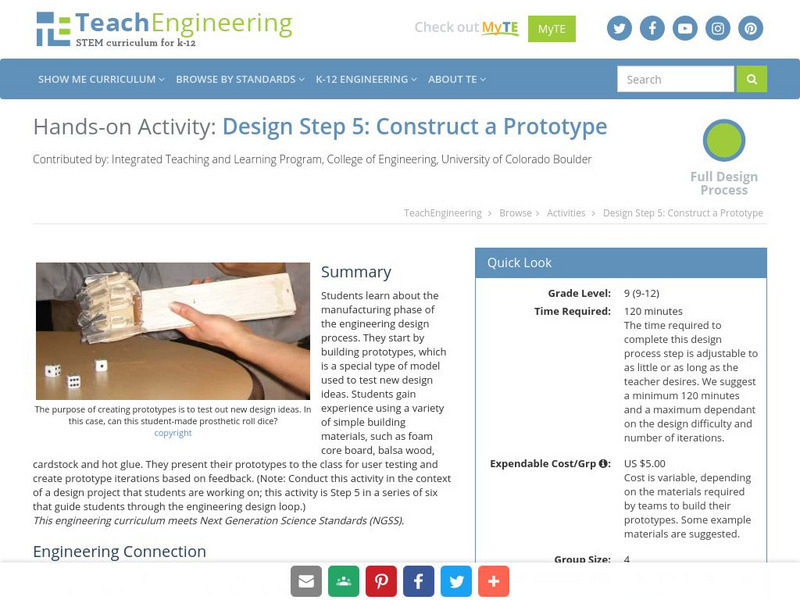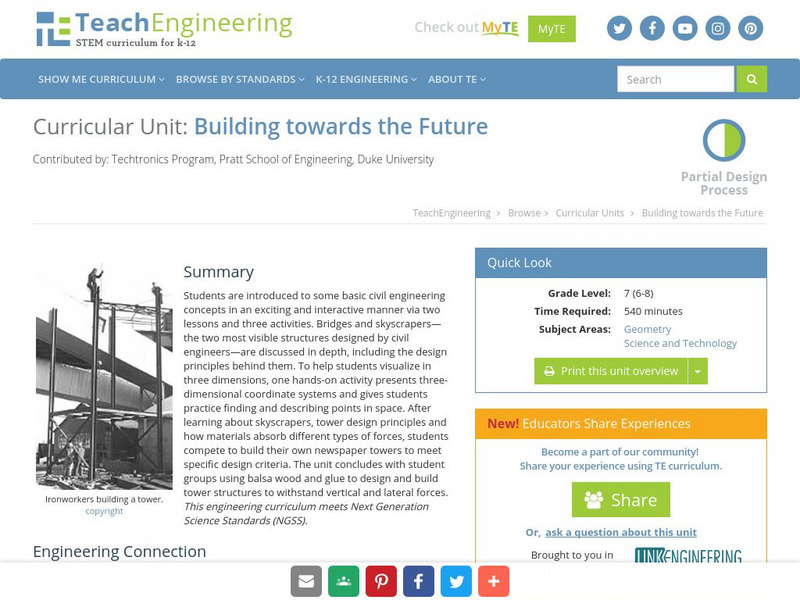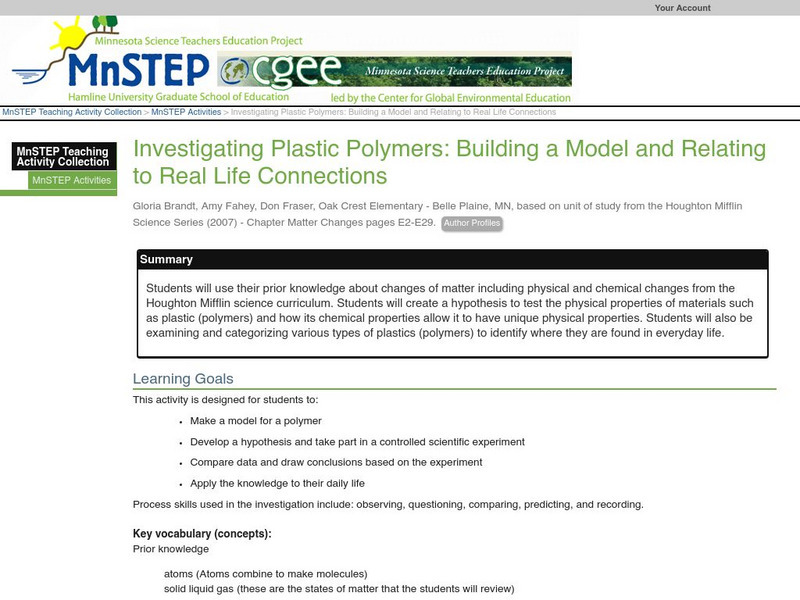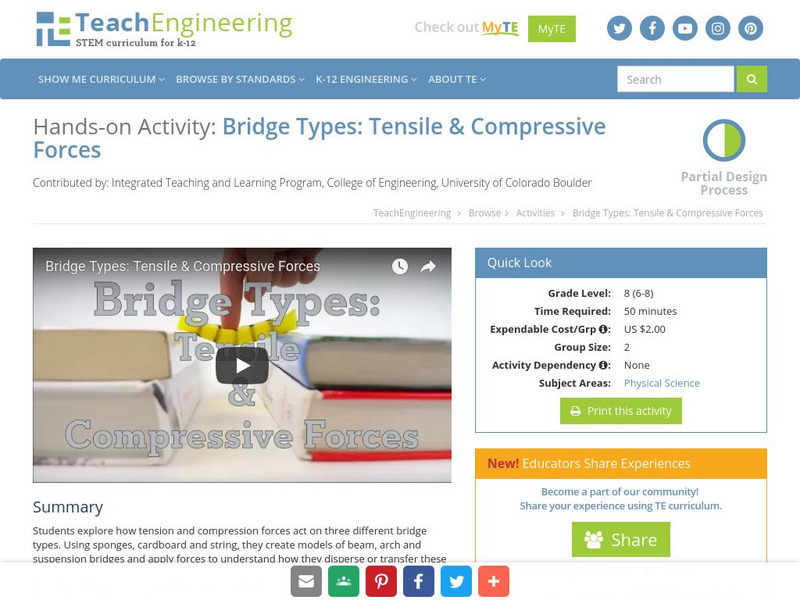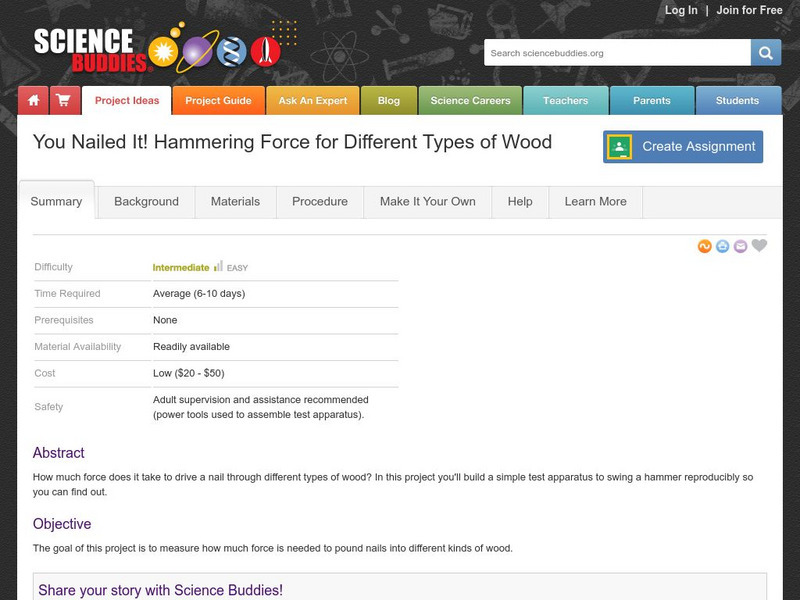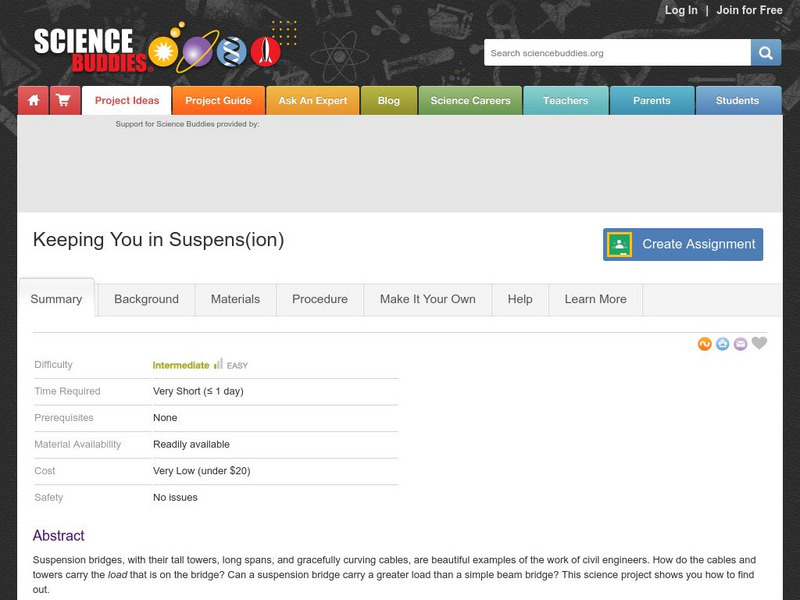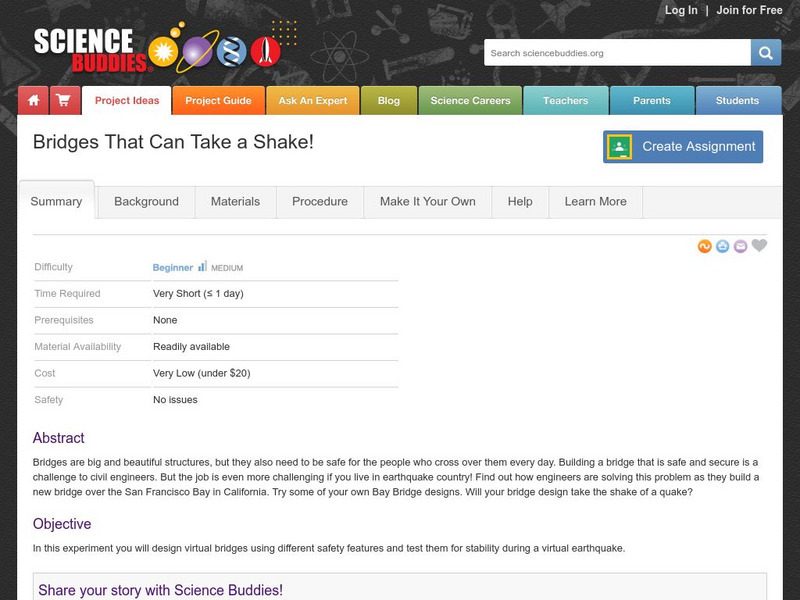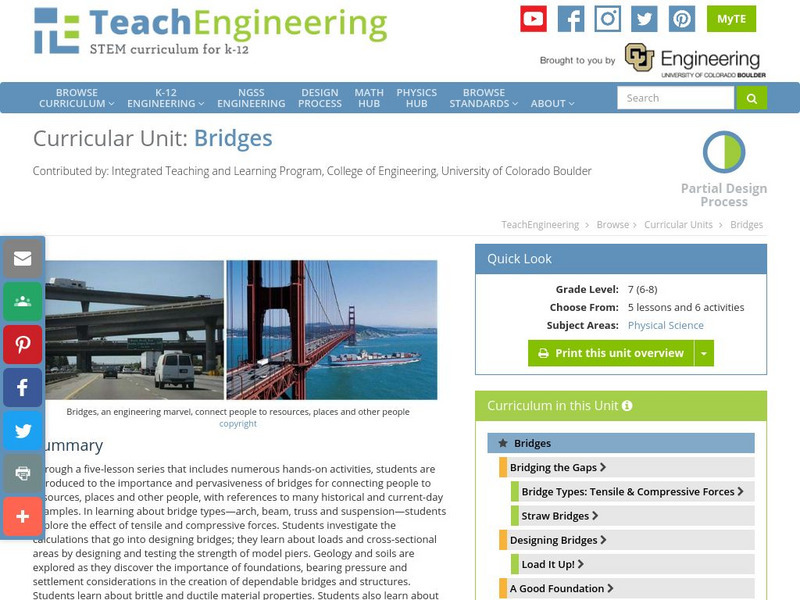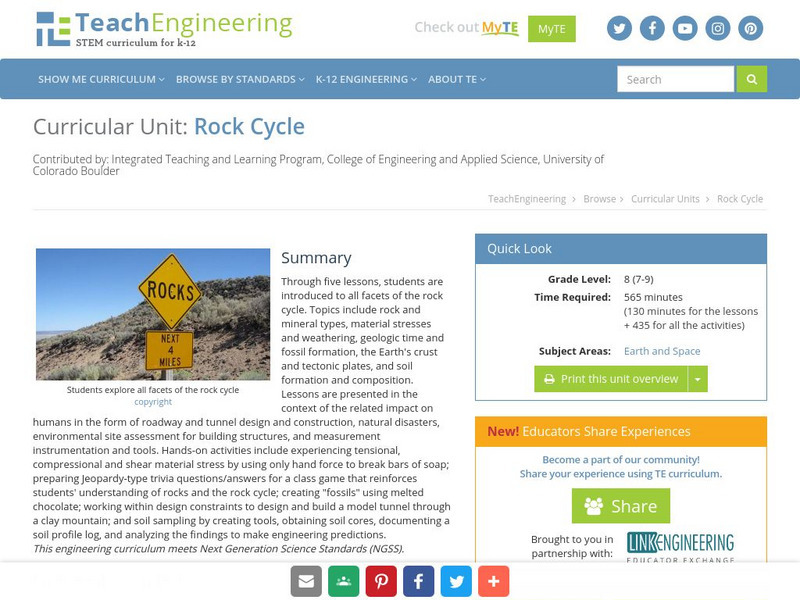TeachEngineering
Teach Engineering: Design Steps 5 and 6: Create and Test a Prototype
Students learn about the importance of creating and testing prototypes during the engineering design process. They start by building prototypes, which is a special type of model used to test new design ideas. Students gain experience...
Georgia Department of Education
Ga Virtual Learning: Mountain Building
In this interactive tutorial you will learn how pressure creates stress and strain on rocks. Learn how different types of strain are produced by different plate tectonic settings, and explore the different types of mountain ranges and...
TeachEngineering
Teach Engineering: Building Our Bridge to Fun!
Students identify different bridge designs and construction materials used in modern day engineering. They work in construction teams to create paper bridges and spaghetti bridges based on existing bridge designs. Students progressively...
Other
Looking at Buildings: Home
Website offers an introduction to architecture, including building types, materials, methods of construction, traditions, and history.
TeachEngineering
Teach Engineering: Building Towards the Future
This curricular unit introduces students to basic Civil Engineering concepts in an exciting and interactive manner. Bridges and skyscrapers, the two most visible products of Civil Engineers, will be discussed in depth. Students will have...
Science Education Resource Center at Carleton College
Serc: Investigating Plastic Polymers: Building a Model
Students will use their prior knowledge about changes of matter including physical and chemical changes from the Houghton Mifflin science curriculum. Students will create a hypothesis to test the physical properties of materials such as...
TeachEngineering
Teach Engineering: Bridge Types: Tensile & Compressive Forces
Students explore how tension and compression forces act on three different bridge types. Using sponges, cardboard and string, they create models of beam, arch and suspension bridges and apply forces to understand how they disperse or...
TED Talks
Ted: Ted Ed: Janet Echelman: Taking Imagination Seriously
In this video, Janet Echelman discusses how her experience of building soft sculptures of fishnet and lace led to the creation of a new type of art material. [9:27] Followed by a brief quiz and a list of additional materials to explore.
Science Buddies
Science Buddies: You Nailed It! Hammering Force for Different Types of Wood
This Science Buddies project explains how to build a mechanism that will reproducibly swing a hammer so you can determine the amount of force needed to hammer a nail through various densities of wood. The Science Buddies project ideas...
Science Buddies
Science Buddies: Get Down and Dirty: How Does Soil Change With Depth?
What covers less than 10% of the Earth's surface, yet is a vital natural resource for terrestrial life? What filters ground water and supports most of our food production, not to mention the production of building materials and paper?...
TeachEngineering
Teach Engineering: Engineering for the 3 Little Pigs
The purpose of this activity is to demonstrate the importance of rocks, soils and minerals in engineering and how using the right material for the right job is important. The students build three different sand castles and test them for...
TeachEngineering
Teach Engineering: Solid Rock to Building Block
Students continue their pyramid building journey, acting as engineers to determine the appropriate wedge tool to best extract rock from a quarry and cut into pyramid blocks. Using sample materials (wax, soap, clay, foam) representing...
Alabama Learning Exchange
Alex: Building a Cell: Edible Cell Project
Students will create an Eukaryotic cell from materials that they can eat. Students will need to have a lesson plan on the types of Eukaryotic cells and its organelles before they complete this assignment. Students will construct these...
Science Buddies
Science Buddies: Keeping You in Suspens(ion)
Find out the different strengths of two types of bridges, beam and suspension, by building your own. This Science Buddies science project gives you the means to find out. The Science Buddies project ideas are set up consistently...
Science Buddies
Science Buddies: Bridges That Can Take a Shake!
Building a bridge in San Francisco has to take into account the possibilites of earthquakes. This Science Buddies science project asks that you use different virtual bridge designs to withstand virtual earthquakes. The Science Buddies...
TeachEngineering
Teach Engineering: Bridges
Through a five-lesson series that includes numerous hands-on activities, students are introduced to the importance and pervasiveness of bridges for connecting people to resources, places and other people, with references to many...
TeachEngineering
Teach Engineering: Beating the Motion Sensor
Lighting is responsible for nearly one-third of the electricity use in buildings. One of the best ways to conserve energy is to make sure the lights are turned off when no one is in a room. This process can be automated using motion...
TeachEngineering
Teach Engineering: A House Is a House for Me
Students brainstorm and discuss the different types of materials used to build houses in various climates. Small models of houses are built and tested against different climates.
TeachEngineering
Teach Engineering: Let's Move It!
Students explore methods employing simple machines likely used in ancient pyramid building, as well as common modern-day material transportation. They learn about the wheel and axle as a means to transport materials from rock quarry to...
TeachEngineering
Teach Engineering: Cost Comparisons
Students learn about the many types of expenses associated with building a bridge. Working like engineers, they estimate the cost for materials for a bridge member of varying sizes. After making calculations, they graph their results to...
TeachEngineering
Teach Engineering: Strong as the Weakest Link
To introduce the two types of stress that materials undergo - compression and tension - students examine compressive and tensile forces and learn about bridges and skyscrapers. They construct their own building structure using...
Other
Geology.com: Rocks: Rocks: Igneous, Metamorphic and Sedimentary
Rocks hold the history of the earth and the materials that will be used to build its future. This website holds a treasure of information regarding igneous, metamorphic and sedimentary rocks.
TeachEngineering
Teach Engineering: Rock Cycle
Through five lessons, students are introduced to all facets of the rock cycle. Topics include rock and mineral types, material stresses and weathering, geologic time and fossil formation, the Earth's crust and tectonic plates, and soil...
TeachEngineering
Teach Engineering: Survive That Tsunami!
Students use a table-top-sized tsunami generator to observe the formation and devastation of a tsunami. They see how a tsunami moves across the ocean and what happens when it reaches the continental shelf. Students make villages of model...
